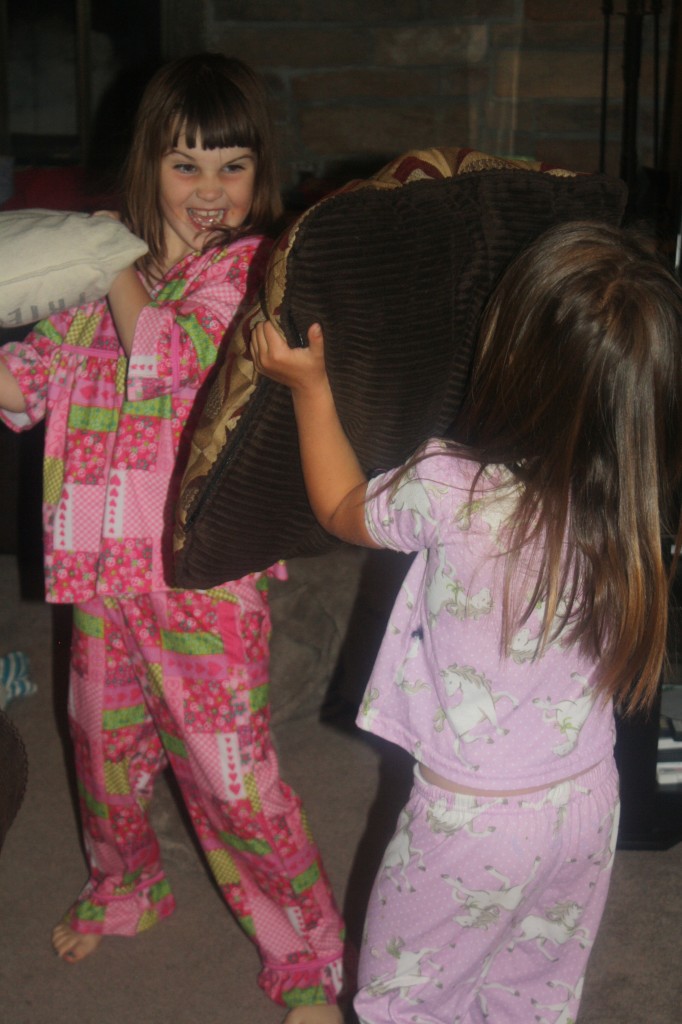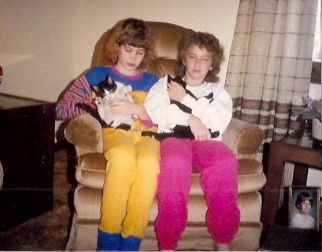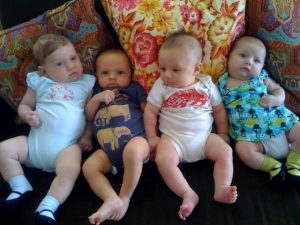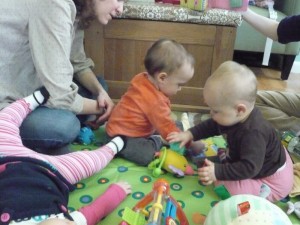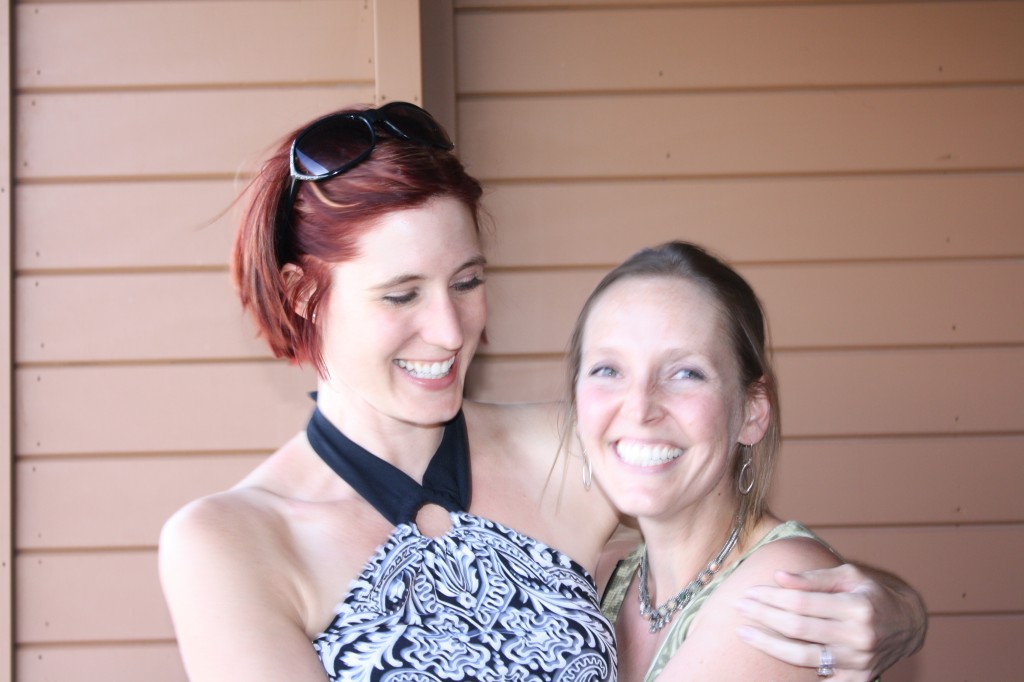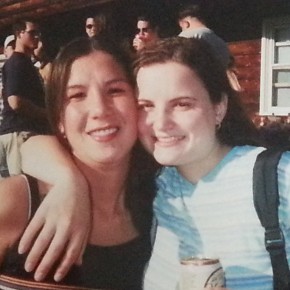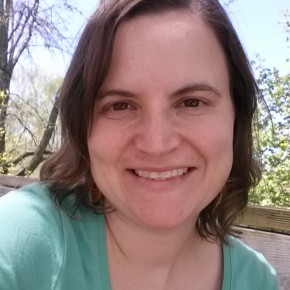Finding The Right Style of Mom Friendships
My toddler and I recently had a playdate with one of my friends and her daughter. Our girls are several months apart, but they are still at an age where parallel play rules, and their own enjoyment of one another is somewhat moot. We are in that perfect stage where we can control and direct their friendships with children whose parents we enjoy. As we entered our friends’ home that morning, it was clear that neither of us had showered or dressed to impress, and within minutes both girls were running around pants-less. There were no mumbled apologies about a mess, or disclaimers about our children’s teething-related temperaments. We were comfortable.
The two of us sat chatting over iced coffees from Starbucks and split a few pastries in half to share while our children happily ignored one another in pursuit of their own activities. We talked about marriage, our discomfort with the extra pounds we were toting, our embarrassment about our children’s newest public behaviors, and our worries about the future. No time was spent idly remarking on the weather, or the sale at Gymboree, or trading cloaked brags about our children’s burgeoning vocabularies. This playdate was for us. We were here to get real.
One of the girls shouted angrily, “That’s MINE!” and we found ourselves navigating that tricky territory of playdate intervention. I had recently asked my childcare guru how best to handle my daughter’s new trait of hollering “No! That’s mine!” and other negative-sounding demands. She reminded me that when possible, it is best to ignore these statements; any attention given to a less than desirable outburst is rewarding the behavior. It reminded me of my good friend Carisa Miller’s article on Hoverparenting, in which she shared her own experience trying to back off when her children were butting heads with friends. She mentioned that it is often a concern that other parents will judge you for not jumping in quickly enough. My friend and I agreed that this made us uncomfortable; we both liked the idea of backing off when our girls were working through possessiveness and interaction struggles, but we worried that we might look like jerks if we didn’t intervene with some sort of reprimand like, “Sophie, those aren’t nice words. We share.”
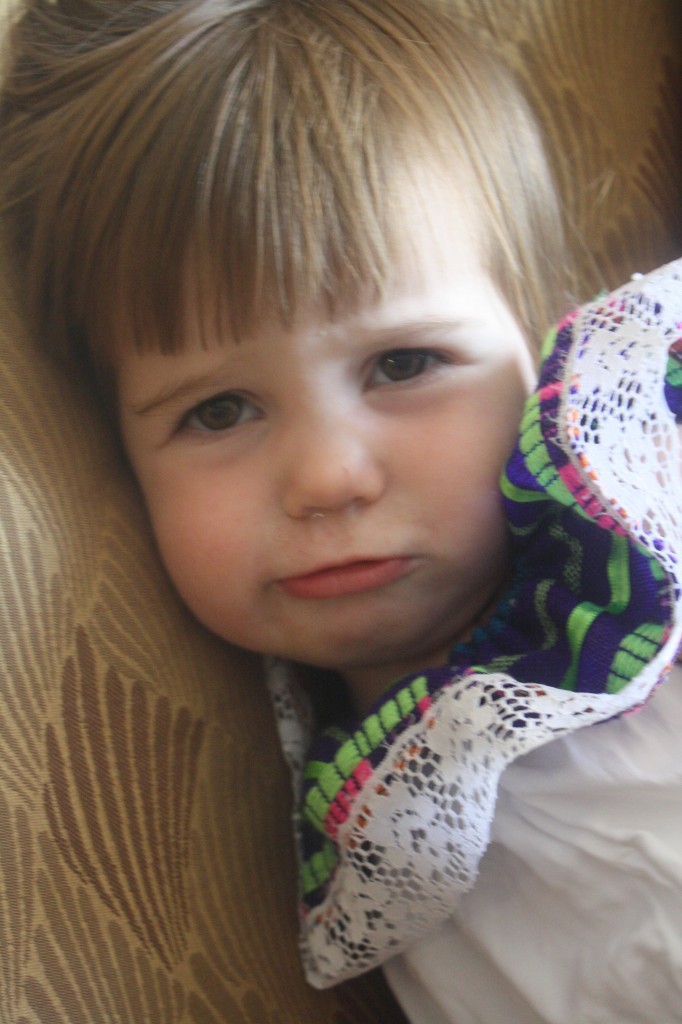
While it is true that I often worry about being publicly judged, at a park or play area, for not verbally intervening and expressing my awareness that my child is being impolite, I think the best friends are ones with whom you can ditch this hang-up. As we listened to our girls bicker for a moment, we agreed that from here on out, we would ignore the “That’s my toy!” whines and let them fend for themselves. Short of overtly harmful behavior, we would step back and make a pact not to think less of one another for our lack of hovering. It felt good. Making that agreement with a friend–we are not here to judge and we are in this together– can deepen a friendship and multiply the benefits of spending time together.
I realized that for me, the mom friendships that I find the most rewarding are the ones in which I can be myself. The understanding is, “Come as you are. You are safe here.” Because of my own personality and needs, I find that it is important for me to disclose what I am going through–even the hard, ugly stuff– and get support from my friends. I am not a big fan of sugarcoating motherhood; if I am having a hard time with something, I prefer to admit it, and I feel even better when my friends can confirm that they have been through it, and they understand.
I think there are two different types of moms: the moms who like to talk about the challenges that lie in the parenting trenches, and the moms that don’t feel comfortable discussing that stuff. Of the latter category, I think there is one more distinction. Some moms may be truly at ease with this parenthood gig, and they may have little need to complain or vent about rough moments. Or perhaps they are genuinely positive thinkers who do not gain anything by sharing their hardships. However, I think many moms experience dark moments and feel guilty about their negative feelings. I believe there are a lot of women that feel ashamed to admit the struggles they are having personally or as a mother; some may prefer to keep these feelings to themselves, and some may battle against them, trying to hide all their unpleasantness and appear to be the perfect moms.
For me, I clearly fall into the first category- let’s talk about this sh*t. I am almost magnetically drawn to other women who share this trait, and I have developed some enriching friendships with women who embrace the full disclosure policy. This works for us, and it’s one of the reasons why my recent playdate was so invigorating to me. I didn’t have to pretend, and I knew that during our two hours together, we would vent, brainstorm, and emerge with renewed confidence and maybe even some ideas to try. But I accept that not all mothers are comfortable with that dynamic; perhaps they value their privacy too much or perceive this sharing as unproductive complaining.
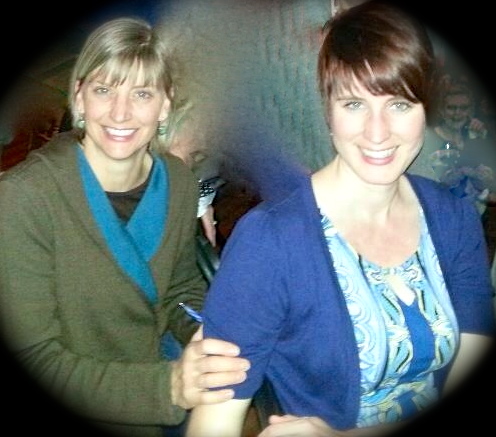
Which is why I think it is important to identify what exactly you are looking for in a mom friend. Is it a confidante who will listen to you when you are struggling? Is it someone with whom you can share the beautiful, enriching moments of parenting? Is it another mom who may quietly struggle but doesn’t expect you to emote or analyze with her?
When you discover what your comfort level is and what you are looking for, you may increase your odds of making meaningful connections with other moms, and you may be more likely to find the style of mom friendships that works best for you.
What do you look for in a mom friend? Do you value closeness and honesty, or would you rather keep your distance?

